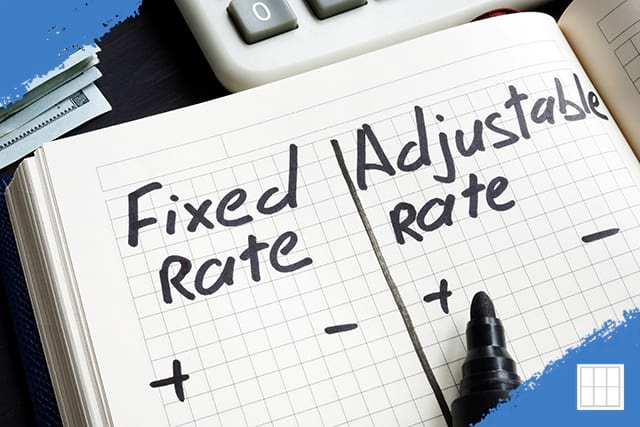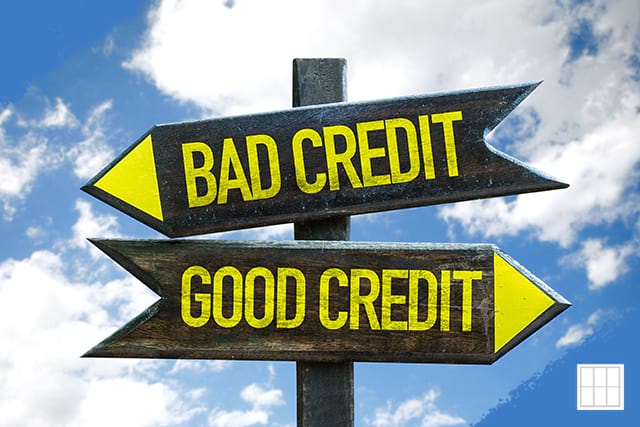On January 29, 2025, the Federal Reserve's Federal Open Market Committee (FOMC) announced its decision…

How to Get the Best Mortgage Rates Today
Understanding how to secure the best mortgage loan rates is crucial for homebuyers. Lower rates can save you thousands over the life of your loan. This guide will help you navigate the process, ensuring you get the best deal possible.
Understanding Mortgage Rates
Mortgage rates are influenced by various factors, including economic conditions, market demand, and individual financial profiles. Knowing what affects these rates can help you make informed decisions.
Factors Influencing Mortgage Rates
Credit Score is a Factor
Your credit score is a significant factor in determining your mortgage rate. Mortgage lenders use your credit history to assess your risk level as a borrower. A higher credit score indicates that you are more likely to repay the loan on time, which can lead to lower interest rates. Conversely, a lower credit score may result in higher rates because the lender views you as a higher risk. Improving your credit score by paying down debt and ensuring timely payments can be beneficial before applying for a mortgage.
The Loan Type You Choose
The type of mortgage loan you choose also affects your interest rate. Fixed-rate mortgages have interest rates that remain constant throughout the life of the loan, providing predictable monthly payments. These are typically higher than initial rates offered by adjustable-rate mortgages (ARMs), which have interest rates that can change periodically based on market conditions. ARMs often start with lower rates, but they carry the risk of future rate increases. Selecting the right loan type depends on your financial situation and how long you plan to stay in the home.
The Amount of Your Down Payment
The size of your down payment can significantly influence your mortgage rate. A larger down payment reduces the lender’s risk because you are borrowing less money. This increased equity in the home often translates into a lower interest rate. Additionally, a substantial down payment can help you avoid private mortgage insurance (PMI), further reducing your overall loan costs. A larger down payment can be a strategic move to secure a more favorable mortgage rate.
The Length of the Loan Term
The term of your mortgage loan is another key factor. Shorter-term loans, such as 15-year mortgages, generally come with lower interest rates compared to longer-term home loans like 30-year mortgages. However, the trade-off is higher monthly payments. Shorter loan terms reduce the lender’s exposure to interest rate liability and typically result in significant benefit over the life of the loan. Consider your budget and long-term financial goals when choosing the loan term.
Economic Factors
Broader economic conditions play a crucial role in determining mortgage rates. Factors such as inflation, economic growth, and the Federal Reserve’s monetary policy decisions can cause rates to fluctuate. For instance, higher inflation usually leads to higher mortgage rates as lenders demand more compensation for the decreased purchasing power of future interest payments. The Federal Reserve’s actions, like adjusting the federal funds rate, also impact mortgage rates indirectly. Staying informed about the economic landscape can help you time your loan application to secure a better rate.
Understanding these factors and how they interplay can equip you with the knowledge to make informed decisions when seeking a mortgage. Improving your credit score, increasing your down payment, and choosing the right loan type and term are actionable steps that can help you obtain a favorable mortgage rate. Additionally, keeping an eye on economic trends and consulting with a mortgage advisor can further enhance your chances of securing the best possible terms.
Improving Your Credit Score
Your credit score plays a crucial role in securing the best mortgage rates. A higher credit score can save you thousands of dollars over the life of your mortgage by qualifying you for lower interest rates. Here’s how you can improve your credit score:
Pay Your Bills on Time
One of the most significant factors affecting your credit score is your payment history. Consistently paying your bills on time shows lenders that you are reliable and capable of managing your finances responsibly. To avoid
missed payments:
- Set Up Reminders: Use calendar alerts or financial apps to remind you of due dates.
- Automatic Payments: Enroll in automatic payment plans for recurring bills like utilities, credit cards, and loans to ensure they are paid on time each month.
Reduce Debt
Lowering your debt-to-income ratio (DTI) can positively impact your credit score. The DTI is a measure of your monthly debt payments relative to your monthly income. Here’s how you can reduce debt:
- Focus on High-Interest Debts: Prioritize paying down debts with the highest interest rates first. This strategy, known as the avalanche method, can help you save money on interest over time.
- Make Extra Payments: Whenever possible, make extra payments toward your debt. Even small additional payments can reduce the principal balance and interest over time.
- Consolidate Debt: Consider consolidating high-interest debts into a single loan with a lower interest rate. This can simplify payments and potentially lower your overall interest costs.
Check Credit Reports
Regularly reviewing your credit reports can help you identify and correct errors that may be harming your credit score. Here’s how to manage your credit reports effectively:
- Obtain Free Reports: You are entitled to a free credit report from each of the three major credit bureaus (Equifax, Experian, and TransUnion) once a year. Visit AnnualCreditReport.com to access these reports.
- Review for Errors: Carefully check your reports for inaccuracies, such as incorrect personal information, accounts that don’t belong to you, or incorrect account statuses.
- Dispute Inaccuracies: If you find errors, dispute them with the credit bureau. You can do this online, by mail, or by phone. Correcting errors can quickly improve your credit score.
Avoid New Credit
Applying for new credit cards or loans before applying for a mortgage can temporarily lower your credit score due to hard inquiries and increased debt load. Here’s why it’s best to avoid new credit:
- Hard Inquiries: Each time you apply for credit, a hard inquiry is recorded on your credit report. Multiple hard inquiries within a short period can signal to lenders that you are seeking more debt, which can lower your score.
- Increased Debt: New credit accounts increase your overall debt, which can raise your credit utilization ratio. High credit utilization can negatively impact your score.
- Stability: Lenders prefer to see stable credit behavior. Opening new accounts shortly before a mortgage application can make you appear riskier.
By implementing these strategies, you can improve your credit score over time and enhance your chances of securing the best mortgage rates. Remember, improving your credit score is a gradual process, so it’s important to start early and remain consistent in your efforts.
Choosing the Right Loan Type
Selecting the right loan type is essential for getting the best mortgage rates and terms suited to your financial situation and future plans. Here are the common types of mortgage loans:
Fixed-Rate Mortgages
Fixed-rate mortgages offer stable interest rates and predictable payments over the life of the loan. This type of loan is ideal for borrowers who plan to stay in their home long-term and prefer the certainty of knowing exactly what their monthly payments will be. Fixed-rate loans provide protection against potential interest rate increases in the future.
Advantages:
- Predictable monthly payments
- Protection from interest rate increases
- Easier budgeting and financial planning
Considerations:
- Initial rates may be higher than adjustable-rate mortgages (ARMs)
- Less flexibility if interest rates drop significantly unless you refinance
Adjustable-Rate Mortgages (ARMs)
Adjustable-rate mortgages (ARMs) start with lower interest rates that adjust periodically based on market conditions. ARMs can be beneficial if you plan to sell or refinance your home before the rate adjusts, potentially reducing the interest you pay in the short term.
Advantages:
- Lower initial interest rates compared to fixed-rate mortgages
- Reduce Interest you Pay if you sell or refinance before the rate adjustment period
Considerations:
- Rate adjustments can increase monthly payments
- Uncertainty about future payment amounts
- Potential for higher costs if rates increase significantly
Conventional Loans
Conventional loans are a popular choice for many homebuyers and homeowners looking to refinance. These loans are not backed by the federal government, unlike FHA, VA, or USDA loans, and typically conform to the standards set by Fannie Mae and Freddie Mac, though there are non-conforming conventional loans as well. Here’s what you need to know about conventional loans:
Advantages:
- Flexible Terms: Conventional loans offer a variety of term lengths, typically ranging from 10 to 30 years, allowing borrowers to choose a repayment schedule that fits their financial goals.
- Lower Overall Costs: While conventional loans may require a higher credit score and larger down payment, they often come with lower overall costs compared to government-backed loans because they do not require PMI if you put down at least 20%.
- Higher Loan Limits: Conventional loans often have higher loan limits compared to FHA loans, making them suitable for purchasing higher-value properties.
- No Upfront Mortgage Insurance Premium: Unlike FHA loans, which require an upfront mortgage insurance premium (MIP), conventional loans do not have this cost.
Considerations:
- Higher Credit Score Requirements: Conventional loans typically require a higher credit score (usually 620 or higher) compared to FHA loans, which makes them less accessible to borrowers with lower credit scores.
- Larger Down Payment: While it is possible to secure a conventional loan with as little as 3% down, putting down at least 20% can eliminate the need for private mortgage insurance (PMI), which can save you money over the life of the loan.
- Stricter Qualification Criteria: Lenders may have stricter criteria for debt-to-income ratios, income verification, and employment history compared to government-backed loans.
FHA Loans
FHA loans are government-backed mortgages offered by the Federal Housing Administration. These loans often have more lenient credit requirements and lower down payment options, making them a good choice for first-time homebuyers or those with less-than-perfect credit.
Advantages:
- Lower credit score requirements
- Smaller down payments (as low as 3.5%)
- Competitive interest rates
Considerations:
- Mortgage insurance premiums (MIP) are required, which increases overall costs
- Loan limits may be lower than conventional loans
- Property must meet certain standards and be FHA-approved
VA Loans
VA loans are available to veterans, active-duty service members, and eligible surviving spouses. These loans are backed by the Department of Veterans Affairs and offer competitive rates with no down payment required, making homeownership more accessible for those who have served.
Advantages:
- No down payment required
- No PMI
- Competitive interest rates
- Flexible credit requirements
Considerations:
- Eligibility is limited to veterans, active-duty service members, and eligible spouses
- Funding fee is required, though it can be financed into the loan
- Property must meet VA standards
Jumbo Loans
Jumbo loans are for amounts that exceed conforming loan limits set by the Federal Housing Finance Agency (FHFA). These loans are typically used to purchase luxury homes or properties in high-cost areas. Jumbo mortgage loans usually have stricter credit requirements and higher interest rates due to the larger loan amounts and increased liability for lenders.
Advantages:
- Allows for financing of high-value properties
- No conforming loan limits
Considerations:
- Stricter credit and income requirements
- Higher interest rates compared to conforming loans
- Larger down payment required (often 20% or more)
- More extensive documentation needed for approval
Choosing the right loan type depends on your financial situation, credit profile, and long-term plans. Fixed-rate mortgages provide stability and predictability, making them ideal for long-term homeownership. ARMs offer lower initial rates and can be advantageous if you plan to move or refinance within a few years. FHA and VA loans provide options for those with lower credit scores or limited down payments, while jumbo loans are suited for high-value property purchases. Assess your needs and consult with a mortgage advisor to determine the best loan type for your circumstances.
Save for a Down Payment
A larger down payment can significantly reduce your mortgage rate. Here are some tips to help you save for a down payment:
- Create a Budget Track your expenses and identify areas where you can cut back. Allocate the savings toward your down payment fund.
- Set Goals Establish specific goals and timelines. Breaking the goal into smaller, manageable amounts can make it more achievable.
- Automate Transfers Set up automatic transfers to your “down payment” account. This ensures consistent contributions without relying on manual actions.
- Reduce Unnecessary Expenses Identify non-essential bills and cut them out. Redirect the difference to your down payment fund.
Shopping for Mortgage Rates
Comparing mortgage rates in Kansas City from different lenders can help you find the best deal. Here’s how to shop effectively:
- Research Lenders Look for reputable lenders with positive reviews. Consider both traditional banks and online lenders.
- Request Quotes Get rate quotes from multiple lenders. Ensure you provide the same information to each to get accurate comparisons. Compare the Annual Percentage Rate of the Loan Estimates.
- Understand the Terms Pay attention to the loan terms, not just the rates. Compare closing costs, fees, and other expenses.
- Negotiate Use the quotes to negotiate better rates with lenders. Don’t be afraid to ask for discounts or concessions.
Locking in Your Rate
Once you find a favorable rate, you may want to lock in the rate. This ensures the rate won’t change before closing. Here’s how to approach rate locks:
- Timing Lock your rate when market conditions are favorable. Consult with your lender to choose the best time.
- Duration Choose a rate lock duration that aligns with your closing timeline. Typical locks range from 30 to 60 days.
- Extensions Understand the lender’s policy on rate lock extensions. Extensions may be necessary if there are delays in the closing process.
Additional Tips for Lowering Mortgage Rates
Pay Points or Discount Points Paying basis points, or upfront fees, can lower your interest rate. Evaluate if this option makes sense for your financial situation.
Refinance Consider refinancing your mortgage if rates drop significantly. This can lower your monthly payments and total interest paid.
Maintain Financial Stability Avoid major financial changes during the mortgage application process. Stable employment and consistent income can positively impact your rate.
Working with a Mortgage Broker
A mortgage broker can help you find the best rates. Here’s what to consider when working with one:
- Experience Choose a broker with experience and a good track record. They should have a deep understanding of the mortgage market.
- Fees Understand the broker’s fee structure. Ensure it’s transparent and reasonable compared to industry standards.
- Lender Relationships Brokers with strong relationships with multiple lenders can offer more options. This increases your chances of finding the best rate.
Common Mistakes to Avoid
Avoiding common mistakes can help you secure better rates. Here are some pitfalls to watch out for:
- Ignoring Credit Score Don’t neglect your credit score. Regularly monitor it and take steps to improve it before applying for a mortgage.
- Not Shopping Around Failing to compare percentage rates from multiple lenders can cost you. Take the time to shop around for the best deal.
- Overextending Finances Don’t stretch your budget too thin. Ensure you can comfortably afford your mortgage payments.
- Skipping Pre-Approval Getting pre-approved shows sellers you’re serious and helps you understand how much you can afford.
How to Get Best Mortgage Loan Rates Conclusion
Securing the best mortgage loan rates in Kansas or Missouri requires preparation and diligence. By understanding the factors that influence rates, improving your credit score, choosing the right loan type, saving for a down payment, shopping around, and avoiding common mistakes, you can position yourself to get the best deal possible.
Working with experienced professionals, such as Metropolitan Mortgage, can also enhance your chances of finding favorable rates. Remember, the effort you put in now can lead to significant savings over the life of your mortgage. Happy house hunting!



